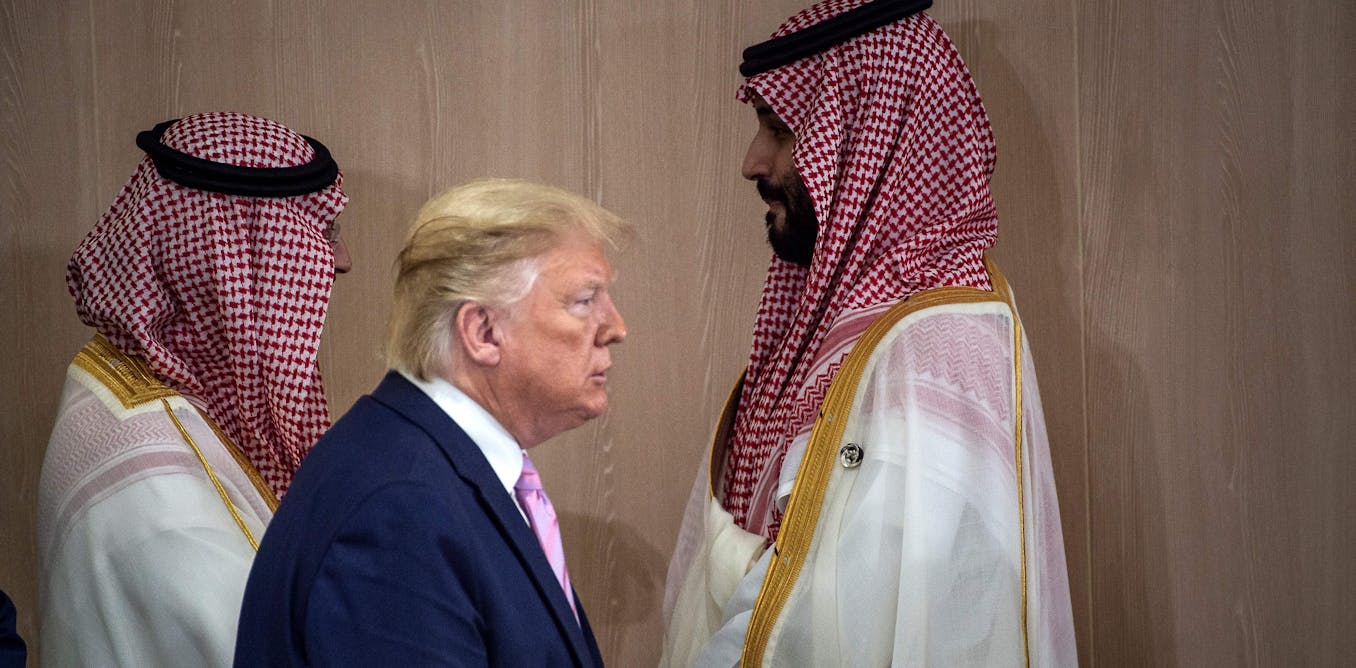Now Reading: Trump heads to the Gulf aiming to bolster trade ties – but side talks on Tehran, Gaza could drive a wedge between US and Israel
-
01
Trump heads to the Gulf aiming to bolster trade ties – but side talks on Tehran, Gaza could drive a wedge between US and Israel
Trump heads to the Gulf aiming to bolster trade ties – but side talks on Tehran, Gaza could drive a wedge between US and Israel

President Donald Trump is scheduled to meet with the Saudi crown prince and leaders of the United Arab Emirates and Qatar on May 14, 2025, in a highly anticipated summit. Notably absent from the guest list and observing cautiously will be Israeli Prime Minister Benjamin Netanyahu.
Netanyahu and other members of his right-wing coalition initially welcomed Trump’s election as U.S. president in November, expecting his Middle East policies to align closely with Israeli interests. However, Trump’s approach has diverged from Netanyahu’s expectations, particularly regarding issues like the Iran nuclear deal.
While the U.S. remains a strong ally of Israel, Trump’s policies have at times contradicted Netanyahu’s positions. Speculation is rife that Trump may announce unilateral U.S. support for a Palestinian state before the Riyadh meeting, signaling a shift in Washington’s approach.
The upcoming summit in Riyadh is part of Trump’s efforts to bolster economic and security ties with traditional allies in the Persian Gulf. The agenda includes trade agreements, arms sales, and the potential formation of a security alliance between the U.S. and Saudi Arabia.
One key point of contention between Trump and Netanyahu is their approach to Iran. Trump’s willingness to engage in diplomatic talks with Tehran contrasts with Netanyahu’s longstanding opposition to Iran’s nuclear ambitions. Additionally, recent developments in Yemen have highlighted differences between the U.S. and Israeli governments.
As the region navigates complex diplomatic challenges, Netanyahu’s focus on political survival and maintaining a hardline stance in Gaza may clash with Trump’s efforts to stabilize the Middle East. The diverging interests of the two leaders suggest a potential strain in the U.S.-Israeli relationship as Trump pursues policies that may not align with Netanyahu’s agenda.






